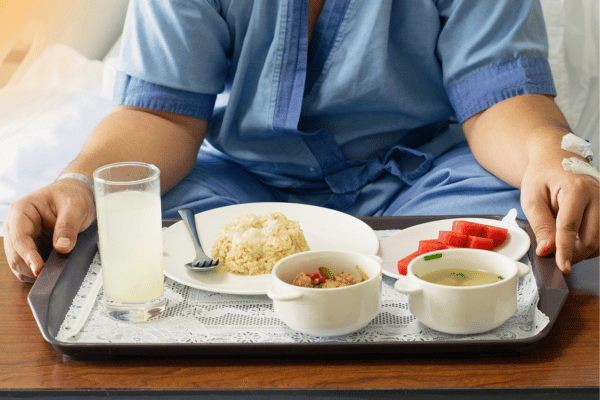What foods cause cancer? – Dr Harold Gunatillake


Image Source : businessinsider
Website : www.Doctorharold.com
Transcript:
Cancer is a dreaded disease, and you must take steps to avoid it. There are genetic causes that are unavoidable, but there are many acquired factors that can lead to cancer. Let us discuss today how we could avoid cancer caused due to acquired factors.
Three types of genes cause cancer.
Types of cancer genes
Oncogenes are mutated genes that cause cells to grow out of control and can lead to cancer. Proto-oncogenes are normal genes that control cell growth, but if they become mutated, they can turn into oncogenes.
The two most common hereditary cancer syndromes are hereditary breast and ovarian cancer ( HBOC ) and Lynch syndrome.
People seem to eat more processed foods in developed countries, pre-cooked foods available in supermarkets and the palatable tastes of such food.
Processed meat, overcooked foods, and fried foods may increase your risk of some types of cancer. That’s because these foods may contain carcinogens or compounds that cause cancer. Alcohol produces carcinogens when it’s metabolised by your body.
For food or drink to be considered a carcinogen, substantial evidence must link its consumption to increased cancer risk and show how cancer may develop. The World Health Organization’s International Agency for Research on Cancer (IARC) classifies carcinogens by determining how likely they are to cause cancer, with the scale divided into five groups: known, probable, possible, unclassifiable and probably not carcinogenic.
Foods and drinks the IARC considers carcinogenic to humans include:
About Alcohol
When the body metabolises alcohol, it produces acetaldehyde, a chemical compound that may damage DNA, which may lead to cancer.
Research has found that the more alcohol you drink, the higher your risk of developing certain kinds of cancer, such as head and neck cancer, oesophagal cancer, liver cancer, breast cancer and colorectal cancer. This information from October 26, 2017, | BY CTCA
Processed meats
Examples include bacon, sausage, hot dogs, pepperoni, prosciutto, beef jerky and salami, meats often preserved by curing, salting or smoking, or with chemical preservatives.
Research has found that eating 50 grams of processed meat—the equivalent of four strips of bacon or one hot dog—every day increases the risk of colorectal cancer by 18 percent.
Red meat
Examples are beef, veal, pork, lamb, mutton, horse and goat.
Eating a large amount of red meat has been linked to colorectal, pancreatic and prostate cancer.
Obesity has been linked to 13 types of cancer, a growing concern in a country where the average American consumes an estimated 89 grams of added sugars per day—two to three times the recommended amount. Cutting added sugars is one of the easier changes you can make to your diet to improve your waistline while also helping to reduce your cancer risk,
Langlois says. “A registered dietitian who specialises in oncology may also be useful in helping you make appropriate diet choices,” she says. “And, remember, it’s OK to indulge in these foods and drinks from time to time. The key is moderation and following a wellbalanced diet rich in fruits, vegetables, whole grains, and low in saturated fats.”
Does sugar fuel cancer cells’ growth?
All cells in our bodies, including cancer cells, use sugar molecules or carbohydrates.
Some believe cutting carbs and sugar-containing foods will reduce cancer cell growth.
No evidence that is simply cutting sugar in your diet will stop cancer cells from spreading.
Scientists are, however, investigating whether specific diets can help slow the growth of tumours. For instance, some preliminary evidence from trials in rodents and humans shows that the ketogenic diet, which is low in carbohydrates and high in fat, may help slow the growth of some types of tumours, such as those in the rectum, when combined with standard cancer treatments like radiation and chemotherapy.
Ketogenic diets are good at lower levels of insulin, a hormone that helps our cells absorb sugar, and research in mice shows that high levels of insulin can weaken the ability of specific therapies to slow tumour growth, according to Neil Iyengar, MD, a medical oncologist at Memorial Sloan Kettering Cancer Center in New York City. “We and others are
studying ketogenic diets for those types of tumours in clinical trials,” Iyengar said. “But a ketogenic diet is probably one of those diets that do not apply to general cancer risk reduction. I think it’s one of those diets that must match tumour biology.”
The Verdict: Cutting sugar won’t stop cancer from growing, but early evidence suggests that a low-carb diet could enhance the effectiveness of specific cancer treatments.
I hope this video presentation helped you avoid certain cancer-producing foods. Eating in moderation may be the answer.
Stay safe, and goodbye for now.
Disclaimer:
The information contained in this article is for general information purposes only, and whilst the author will endeavour to keep the information up to date and correct, eLanka makes no representations or warranties of any kind, express or implied, about the completeness, accuracy, reliability, suitability or availability with respect to the eLanka website or the information, products, services, or related graphics contained in this article for any purpose. Any reliance you place on such information is therefore strictly at your own risk. In otherwords, eLanka In no event will we be liable for any loss or damage including without limitation, indirect or consequential loss or damage, or any loss or damage whatsoever arising from loss of data or profits arising out of, or in connection with, the use of this website / article. Also please note that through this website / web page articles you are able to link to other websites which are not under the control of eLanka and therefore we have no control over the nature, content and availability of those sites. The inclusion of any links does not necessarily imply a recommendation or endorse the views expressed within them.







